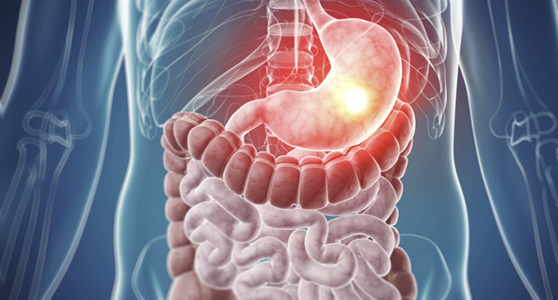
What is Gastro-Intestinal Cancer?
Gastro-Intestinal (GI) cancer refers to the group of cancers that attacks the digestive system. This group comprises cancers of the gallbladder, liver, pancreas, stomach, colon and rectum, small intestine and anus. GI cancer is one of the common cancers and affects both men and women. These types of cancers are often detected at the advanced stage because there are no early signs or symptoms.
Gallbladder Cancer: The gallbladder is a small pear-shaped organ that is located under the liver in the upper part of the abdomen. Primary gallbladder cancer begins in the inner layer and spreads to the outer layer as it develops.
Liver Cancer: The liver is the largest organ inside our body. It lies below the right lung and is split into two sections or lobes-the right and the left lobes. Liver metastases are malignant tumors that have metastasized or spread to the liver from another part of the body. These tumors can be seen shortly after the primary tumor is detected or several months or years later.
Pancreatic Cancer: The pancreas is situated in the abdomen and is filled with cells that perform hormonal (endocrine) and digestive (exocrine). Malignancy can develop from both these type of cells.
Stomach Cancer: The stomach is situated in the upper abdomen and aids in digesting food. In this type of GI cancer, malignant cells take shape of the lining of stomach. 70%-80% of stomach cancers manifest in advanced stage.
Small Intestine Cancer: The small intestine (small bowel) is located between the stomach and the colon. Its main function is to digest and absorb nutrients. Malignant tumors that form in the small bowel can be classified into various types: adenocarcinoma, lymphoma, sarcoma and carcinoids.
Colon Cancer: Colon and rectum are the end portions of the tube that stretches from the mouth to the anus. Colorectal cancer is a chronic condition in which malignant tumors form on the inner walls of the large intestine (colon) or rectum. Anal Cancer: The Anus is located at the end of the large intestine, below the rectum, and allows solid waste (stools) to leave the body.
Symptoms:
GI tumors are brittle and bleed easily. In fact, they are detected because they lead to bleeding in the GI tract. Other symptoms of GI cancer are:
Pain in the abdomen
Difficulty in eating
Changes in bowel movement
Loss of appetite followed by weight loss
Treatments:
A treatment modality for GI cancer includes surgery, radiation and chemotherapy. With better and improved technology, oncologists can now perform minimally-invasive surgeries to treat GI cancers. Laparoscopy is a minimally-invasive surgery that is performed in the abdomen or pelvis area after administering anesthesia to the patient. The oncologist performs these surgeries through small incisions sized 0.5-1.5 cm. Patients and medical professional prefer these surgeries to the traditional ones as they can easily be performed.
Talk to us:
If you have any questions regarding GI cancers or treatment modality, please get in touch with Dr. Dinesh M.G., who has completed his fellowship in Minimal Access Oncology (MAO) from the Indo American Cancer Institute, Hyderabad.
